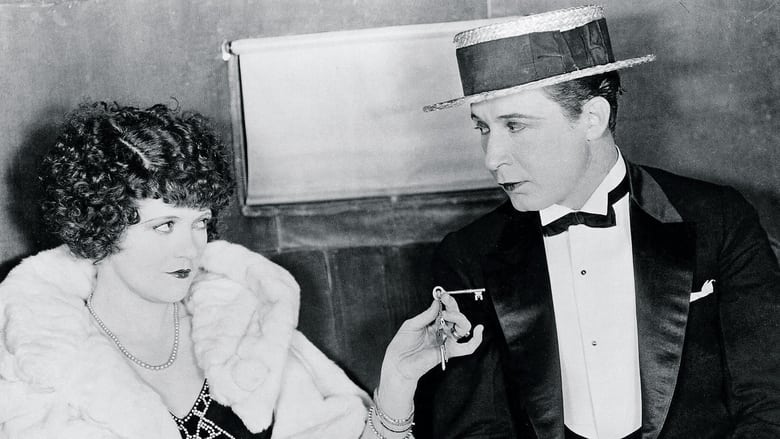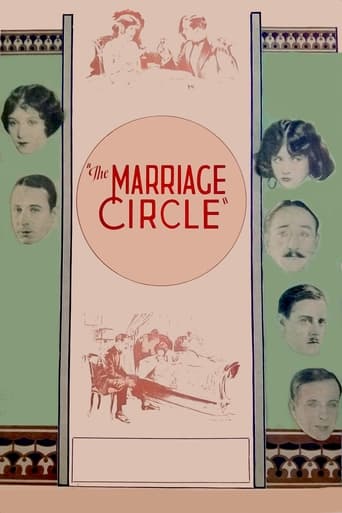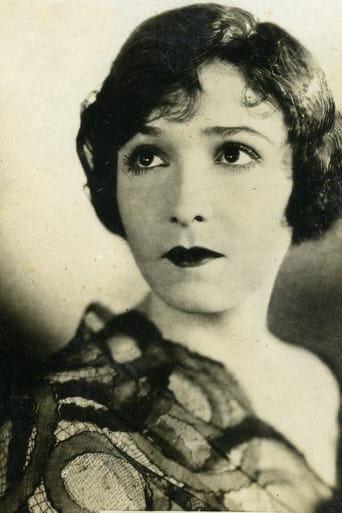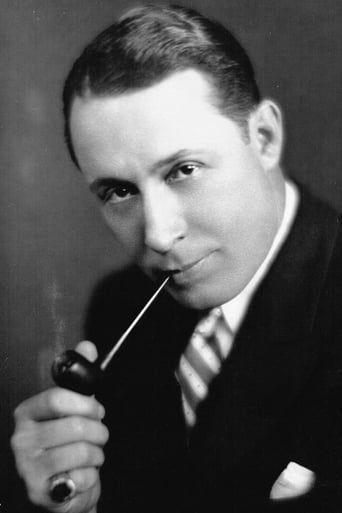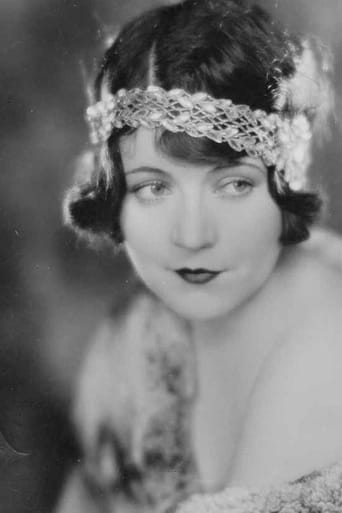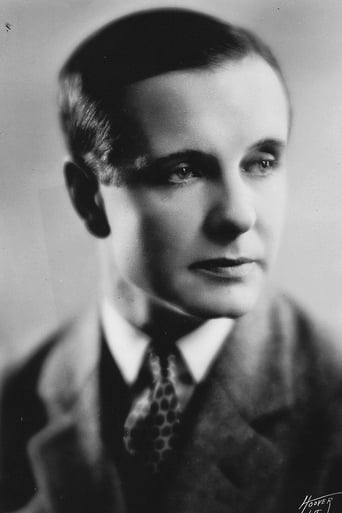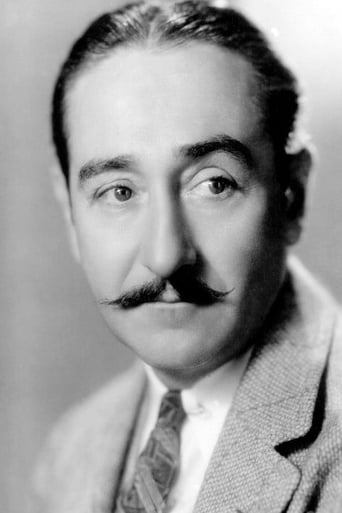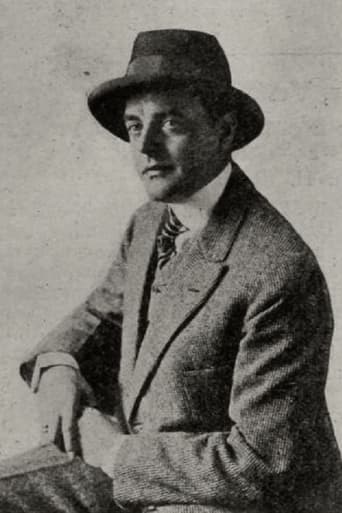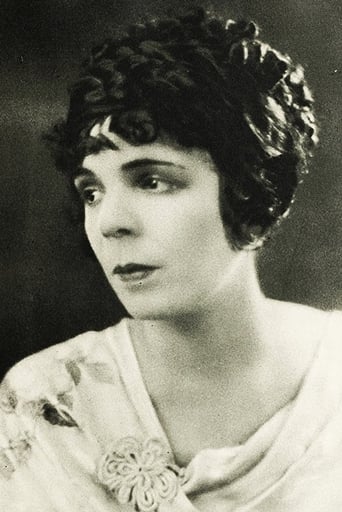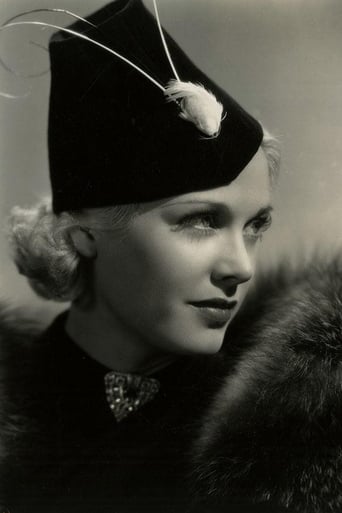Professor Stock and his wife Mizzi are unhappily married. The professor, suspicious of his wife, hires a detective to spy on her in hopes of obtaining a divorce. Mizzi sets her sights on seducing Dr. Franz Braun, the new husband of her good friend Charlotte. Dr. Braun's colleague, Dr. Mueller, who has his eye on Charlotte, sees this as his opportunity. Through a misunderstanding, Charlotte thinks that her husband is interested in Miss Hofer, and asks Mizzi to keep him occupied... around and around the circle goes in Lubitsch's refined comedy of mistaken infidelity.
Similar titles


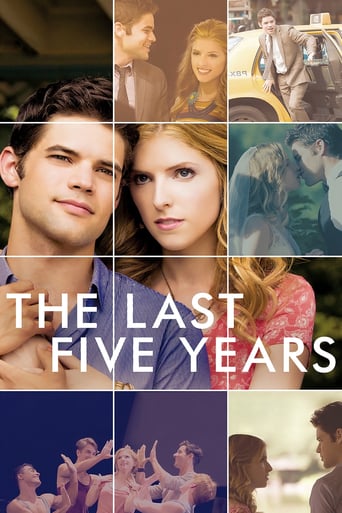
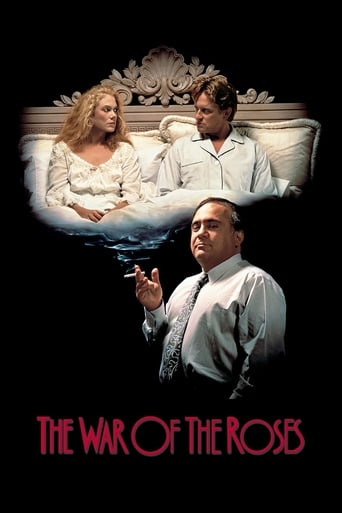
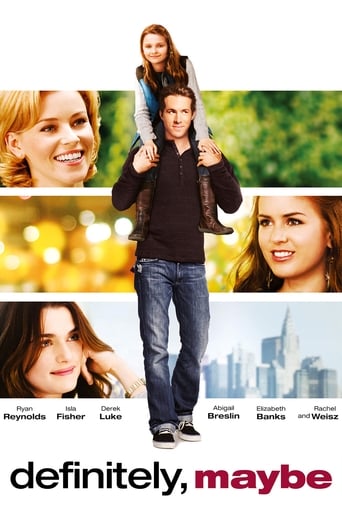
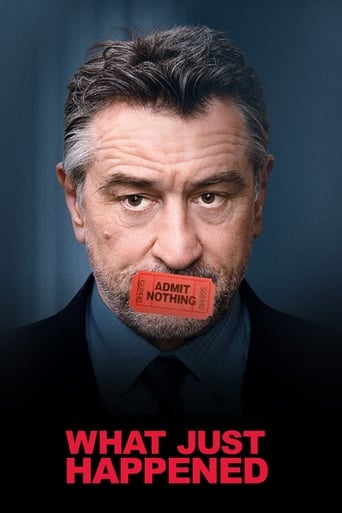
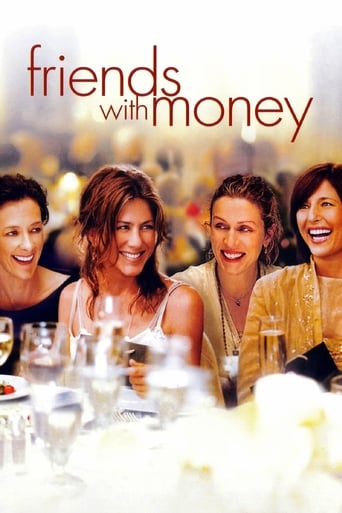
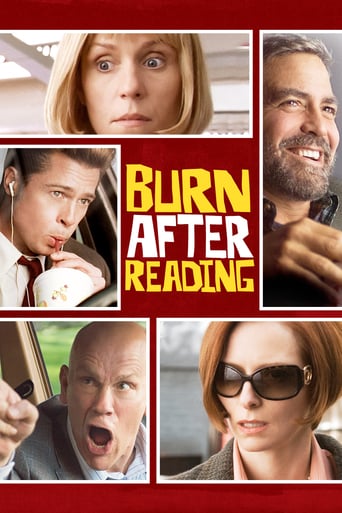
Reviews
Very Cool!!!
Fresh and Exciting
Fantastic!
what a terribly boring film. I'm sorry but this is absolutely not deserving of best picture and will be forgotten quickly. Entertaining and engaging cinema? No. Nothing performances with flat faces and mistaking silence for subtlety.
Professor Stock (Adolph Menjou) and wife Mizzi (Marie Provost) have reached an impasse in their marriage and he wants out. Mizzi's best friend Charlotte ( Florence Vidor ) is blissfully married to Dr. Charles Braun (Monte Blue). His partner Dr. Mueller (Creighton Hale) has designs on Charlotte who has no interest. When Mizzi sets her sights on Dr. Braun suspicions, stoked by misinterpretation and the diabolical Mizzi arise and accusations fly.The Marriage Circle is an excellent comedy of errors from the Silent Era featuring the wit and sophistication of Ernst Lubitsch that would go on to brilliantly inform some of the finest adult comedies before and after sound and code enforcement. Here he breezily unfolds his story with a benign amorality and suspense as his quintet of characters all share a little guilt and selfishness. Vidor is a beauty and paragon of virtue to behold but capable of being petty. Blue and Hale comically pine and mope while Menjou is pure dinner at eight collected. Acting honors however belong to Provost's Mizzi whose side glances and brashness haul the rest of the characters into the circle. The Marriage Circle is an outstanding example of silent film comedy and in large contrast to the slapstick that still dominated. Doors are closed, not slammed or run through, the humor is sly not pie in the face. Lubitsch conveys it beautifully here as he would into sound as well as influence a generation of filmmakers.
Silent cinema is not inherently inferior to the sound cinema, but many silent pictures, especially those from the early-to-mid 1920s, seem stilted in comparison to their talkie counterparts due to an over-reliance on title cards, and a lack of faith in the audience's ability to "read" images. Fortunately, they aren't all like this, thanks to the inventive boldness of the era's greatest filmmakers.To start at the very beginning (a very good place to start), The Marriage Circle is the first comedy Ernst Lubitsch made in Hollywood. It's been pointed out that there was an abrupt change in pace compared to his earlier Berlin comedies, which were non-stop riotous farces. This is true, but The Marriage Circle also sees an enormous shift in tone. Lubitsch's pictures in his home country were absurd to the point of being surreal, staged with an emphasis on exaggeration and peopled with theatrical caricatures. The Marriage Circle however depicts a reasonably realistic situation, albeit a comically improbable one. There is no slapstick here, but neither is it a witty verbal comedy. Instead the humour derives from numerous misunderstandings as five characters become innocently entangled a complex love pentagon. In this, the audience is omniscient – we know everything that is going on – whereas each character knows only enough to make them misconstrue. Lubitsch's problem then, was how to convey this to the audience without spoon-feeding them every detail, and above all keep it funny.He does it, not just by showing us everything, but by showing us how things are seen by everyone. The camera is never merely presentational; it is always within the action. In virtually every shot, we are either seeing things from a character's point of view or we are focusing on a character's reaction. The angles are never external, watching the players interact with one another; they are always down the line, putting us inside the interaction. And Lubitsch is brave enough – and knows we are intelligent enough – to switch quickly from one perspective to another. For example, in the scene where Mizzi (thinking she is onto something) embraces Dr Braun, we go from Muller seeing them from behind and assuming Mizzi is Charlotte, to his seeing Charlotte in the waiting room (and thus realising the woman in the embrace can't have been Charlotte), to Braun realising Charlotte is watching, to Charlotte realising Braun has been dallying with a female patient whom she doesn't realise is Mizzi! As you can see, it all sound rather confusing when put it into words, but on screen it's a cinch to follow.But that's not all that's going on here. As well as getting the right angles on the action, Lubitsch throws in some subtle tricks to imply rather than state the way things are. In the opening scene, it is clearly established that the Stocks's marriage is not the most harmonious, but it is one simple moment that reveals the true extent of the breakdown. Adolphe Menjou sees his wife get into a cab with another man, assuming (wrongly of course!) she may be having an affair. He turns to the camera, his expression unreadable. And then, slowly, a smile spreads over his face.And this leads me neatly onto the next point, that it is as much the skills of the actors that make this wordless fiasco workable. The two lead men, Adolphe Menjou and Monte Blue, are not comedy actors in the normal sense, but they exhibit great comic timing and control. Just as the story is believable but unlikely, their performances are naturalistic but extreme. Menjou is the master of the withering glance and the long-suffering sulk. You get the impression, just by looking at his face, that here is a man who was not cut out for marriage. Blue, on the other hand, expertly portrays the complete opposite, a modest and honest man who seems unaware of his own attractiveness. You pick up his character from some neat little gestures; such as him nervously pulling at his collar to cool off – something you normally only see cartoon characters doing. Florence Vidor has the restrained demeanour of the only entirely normal person caught up in this situation, and gives a wonderful straight performance that counterpoints all the others. Creighton Hale is the only one of the players who is somewhat hammy and unrealistic, but as a more marginal and somewhat ridiculous character, he is allowed, and even helps give the picture its slightly silly edge. Marie Prevost is the only one of the five who is not exceptional, but she is by no means bad, and at least fits the part.Lubitsch himself claimed this was his favourite of all his own pictures, and the only one which if he had to do again he would change nothing. It was well liked by his contemporaries too, and in the dying days of the silent picture you can see a significant move towards more sedate and subtle silent comedies, especially in the work of directors like Rene Clair and Leo McCarey. And after that of course, the talkies would come along, and it would all change again.
This was actually Ernst Lubitsch's first film for Warner Brothers, he remade it 8 years later as the sublime One Hour With You for Paramount. It's always been difficult for me to not mentally refer to the latter whenever watching this because it's a good film in its own right and is better not compared to the technically and technologically improved later musical version.In Vienna city of dreams the husband of an ever-flirting wife grasps the opportunity to obtain a divorce on the grounds of her infidelity with the husband of her best friend. And the husbands' best friend fancies his wife too. Farcical situations develop, with the prevailing morals and manners always to the fore, but basically everyone gets what they deserve. Lubitsch's elegant production, the lovely décor, lightly salted frivolous story and human acting proved a big hit at the time and dare I say it, could be ultimately just as rewarding to watch as OHWY. It might have been a little better if it had only been 10 minutes shorter some of the scenes are stultifyingly languorous, but I'm not really complaining.Although neither version ended satisfactorily, this was still a wonderful piece of film-making, a foretaste of things to come from Lubitsch and above all else, nice entertainment.
This was Lubitsch's first film for Paramount following Rosita with Mary Pickford and sees him in transcendent form.A highly sophisticated comedy set in Vienna (possibly to allow for the outrageous conduct of the characters)and rich in complex farce scenarios and intelligent narrative twists played by an excellent cast.Marie Prevost is extraordinary as the relentless pursuer of the happily married Dr Franz Braum, happily married that is to her best friend played by Florence Vidor. Adolphe Menjou offers a characteristically fine performance as the betrayed husband seeking divorce from his wayward wife. His expressions are hysterical as he reveals his caustic feelings towards his spouse. This film explores issues of marriage, commitment, fidelity and temptation in the Lubitsch style. A very funny, touching comedy that displays Lubitsch's talent for understated sophisticated comedy. This stands alongside some of his best films such as The Shop Around the Corner and To Be or Not to be as an equal.
Top Streaming Movies











